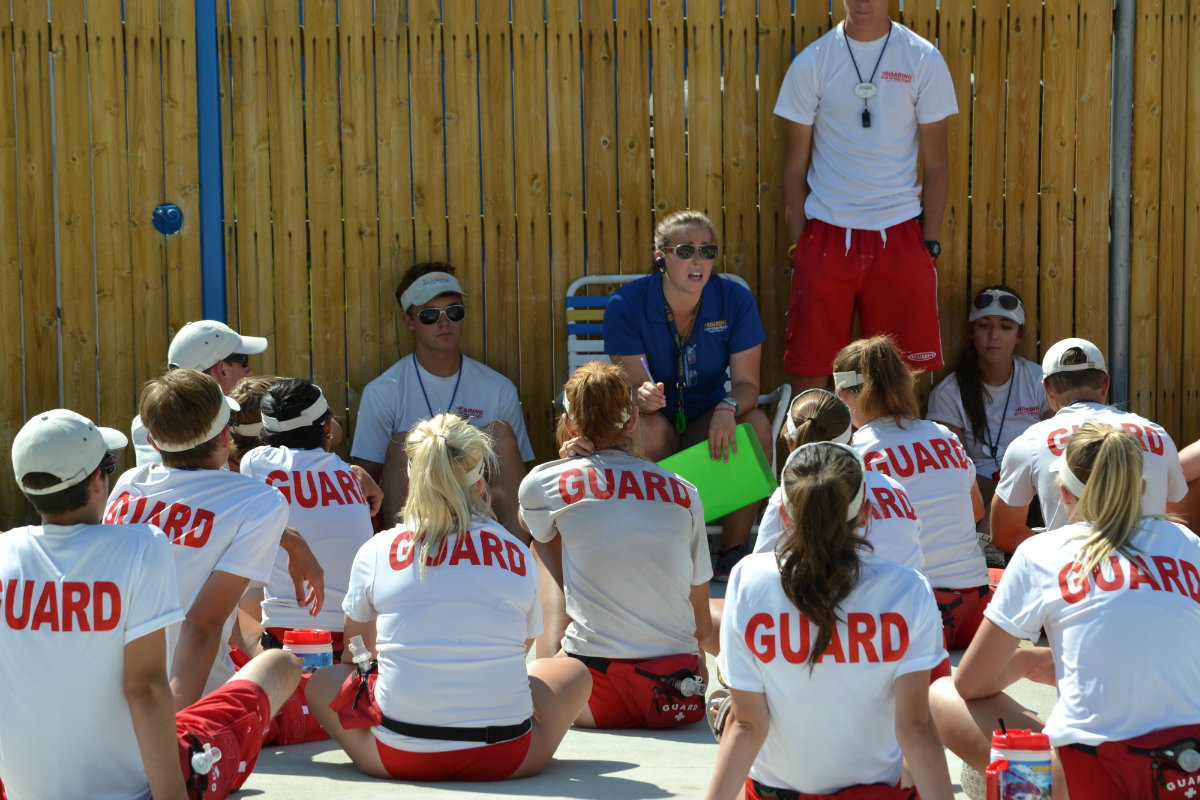When planning your agency’s hiring time line, you’ll no doubt schedule a pre-employment orientation for new recruits. But what about their parents?
Including moms, dads and caretakers at an orientation may conjure up images of helicopter parents. You know the type: They hover over their child, even as their charge enters the workforce. This potentially causes your young, highly impressionable staffer to develop a skewed view of what it means to hold a job. This enablement could be as simple as providing transportation, dropping off a forgotten lunch or calling on behalf of your young lifeguard to explain why they must miss work for sports commitments or vacations that weren’t listed on the application.
Helicopter parents can become an obstacle for every employer trying to help these young people become independent professionals.
That’s why you should invite them.
Welcome them into our agency and educate them on the job their child is about to embark on. Here’s how. Upon selecting your new seasonal staff, send a formal invitation to your pre-employment orientation, making clear that both child and parent must attend. This meeting presents an opportunity to share what your agency can offer these young candidates while informing parents of the job their child has signed up for.

East Bay Regional Park District
Pete DeQuincy, aquatic manager for the East Bay Regional Park District, makes a presentation about the lifeguarding department at a new-hire orientation.
The presentation should cover your agency’s mission and history, and annual statistics such as the number patrons served, swim lessons provided and rescues made. This helps convey the importance of your agency’s—and the young lifeguard’s—role within the community.
State that serving the public is noble work that few individuals get the opportunity to do.
Here are two things you should clearly define:
The role: I like to tell parents that their son or daughter will become a subject matter expert on drowning prevention, that they will educate and advocate on water safety, and will strive to make sure everyone goes home safe and alive. Discuss what the position (lifeguard or swim instructor) means to your department and the traits that are needed to fulfill the position successfully. Example: “Your son or daughter will become part of our team that helps keep the public safe. They will be honest and professional, and act with integrity to maintain the public’s trust.”
Expectations: This is where you outline the duties of the job. Parents should know that their children will be expected to recognize a potential victim within a crowd of 4 to 2,000 patrons, react and respond quickly with the appropriate rescue, assess what the victim needs, and provide the appropriate care. To help assuage any concern this could cause, reassure children and parents that, following an aquatics incident, your agency provides counseling services.
In discussing expectations, incorporate a social contract that each employee must sign. This document defines your agency’s core values. It can cover the need to look professional, be punctual, and act with honesty and integrity to both their co-workers and the public. Include a copy in the handouts, so both child and parent can review.
Provide a list of all important events. This should include trainings, significant program dates, and special events that require additional staffing. Discuss your expectations for sanctioned events that occur before or after normal work times. Also mention that all sanctioned activities appear in the list. Other gatherings and outings, such as when lifeguards get together for parties, are not sanctioned or supported by the agency. Young staffers and their parents should see a clear delineation between approved and sanctioned activities, for which we will be responsible and liable, and unsanctioned activities for which we will hold no responsibility.
-
Aquatics Industry Grapples with ‘Ghosting’
Without word or warning, new recruits are bailing and it's driving employers crazy.

Include what you need from the parent. Explain that your agency is there to advocate for their child’s growth and soft-skill development. Share that you want to see their child become part of a successful team and a contributing member of society. Mention that you are there to help in the development of the employer/employee relationship, and you take that responsibility seriously.
But parents should understand that, in order for your agency and their child to achieve success, the guardians must disengage from certain activities. Parental interference could hinder their child’s development and independence. Common interruptions, as I’m sure you’re aware, include stopping by unannounced, calling the facility asking to speak to their child, and pulling their kid off duty because of an unscheduled vacation.
Clarify the location of work schedules, and review your agency’s policy on requesting time off. Explain the process of informing a supervisor when an employee is going to be late or sick. Remind them that it is their responsibility to bring a lunch to work, including a water bottle, to wear a clean, agency-issued uniform, that cell phone use will only be allowed at certain times, and that a positive attitude is expected.
Parents also should know that if they receive a call regarding their child’s behavior, it means the agency has already attempted to correct the behavior and has been unsuccessful.
Remind them that your agency wants to be transparent during this process, and reassure them that they can ask for clarity at any time.
This will be one of the few moments a parent will have access to your agency representatives. Help comfort and reaffirm that they are making the right choice in letting their child work for you.
These joint orientations help reduce potential parental interruptions in my agency. I think they can have the same effect industry-wide.


